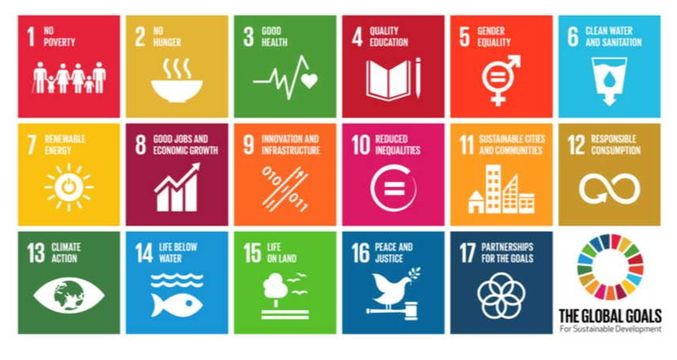Social Impact Projects: How to Make a Difference in the World
Introduction: The Importance of Social Impact Projects
Social impact projects have the potential to transform communities, improve lives, and create a sustainable future. These projects aim to address critical societal issues, such as poverty, education, healthcare, and environmental sustainability. Social impact initiatives can range from local volunteer programs to global movements, and they have one thing in common: they seek to create positive, lasting change.
In this article, we will explore the importance of social impact projects, the types of initiatives you can get involved in, and how you can start your own project to make a meaningful difference in the world.

What Are Social Impact Projects?
Social impact projects are initiatives designed to solve specific problems within a community or society. These projects focus on improving the well-being of individuals and communities, addressing inequality, and creating opportunities for sustainable development. The core of social impact work is empowerment, equality, and justice.
Social impact projects can be led by non-profits, governments, businesses, or individual activists. They often involve collaborations between different stakeholders and leverage community resources to create long-term positive effects.
Examples of Social Impact Projects
Here are some common examples of social impact projects:
-
Building infrastructure in underdeveloped areas (e.g., schools, hospitals, sanitation facilities).
-
Educational programs aimed at improving literacy and skills training in disadvantaged communities.
-
Environmental sustainability projects, such as waste management, renewable energy, and wildlife protection.
-
Healthcare initiatives that provide access to medical services and raise awareness about health issues.
These projects make a measurable impact on people’s lives and the environment, contributing to the achievement of global development goals such as the United Nations Sustainable Development Goals (SDGs).

Why Are Social Impact Projects Important?
1. Addressing Global Challenges
Social impact projects tackle pressing global issues such as climate change, poverty, and inequality. These challenges require innovative and sustainable solutions to ensure a better quality of life for everyone, particularly the most vulnerable groups in society. By participating in or supporting social impact projects, individuals and organizations contribute to solving these problems on a global scale.
2. Promoting Social Justice and Equality
Social impact initiatives aim to reduce social disparities and provide equal opportunities for all, regardless of background, ethnicity, or income. These projects work to break down barriers and foster inclusive societies. Whether it’s providing education to marginalized communities, improving access to healthcare for underserved populations, or ensuring equal rights for women, social impact work drives societal progress toward fairness and justice.
3. Creating a Sustainable Future
Many social impact projects focus on long-term sustainability by addressing environmental issues and promoting responsible practices. Projects that support renewable energy, conservation, and waste reduction contribute to protecting the planet for future generations. Sustainable social impact projects align with the SDGs, working toward environmental preservation while meeting the needs of current and future populations.
Types of Social Impact Projects
1. Community Development Projects
Community development is the process of improving the quality of life for people within a specific area. These projects aim to create better infrastructure, improve economic opportunities, and promote social cohesion. Examples include:
-
Affordable housing projects for low-income families.
-
Job training and employment programs to reduce unemployment.
-
Community health initiatives, including immunization campaigns and disease prevention education.
2. Environmental Impact Projects
With the rising threat of climate change, environmental social impact projects are more important than ever. These projects focus on protecting ecosystems, reducing pollution, and promoting sustainability. Some common environmental impact projects include:
-
Reforestation programs to restore damaged ecosystems.
-
Clean energy initiatives, such as solar panel installation and wind energy projects.
-
Water conservation efforts in regions facing drought or water scarcity.

3. Education and Awareness Projects
Access to quality education is a fundamental pillar of social impact. Education projects aim to bridge the gap between privileged and underprivileged communities by providing educational resources, scholarships, and awareness programs. These projects can include:
-
School building projects in underserved areas.
-
After-school tutoring programs for children from low-income families.
-
Workshops that focus on lifelong learning and personal development.
4. Healthcare and Public Health Projects
Improving access to healthcare is a critical component of social impact. Health-related projects focus on disease prevention, increasing access to medical services, and improving overall health standards. Some examples include:
-
Mobile clinics that provide healthcare in rural or remote areas.
-
Health education campaigns about nutrition, hygiene, and preventative care.
-
Disaster relief and emergency medical aid for communities affected by natural disasters.
How to Get Involved in Social Impact Projects
1. Volunteer Your Time
Volunteering is one of the most direct ways to get involved in social impact projects. Many organizations rely on volunteers to support their initiatives and help achieve their goals. Look for local or global volunteer opportunities with organizations that align with your values and skills. Volunteering can be done in-person or virtually, allowing you to contribute regardless of location.
2. Donate to Charitable Causes
If you don’t have the time to volunteer, another way to contribute is by donating money or resources to causes you care about. Many social impact projects are funded through donations, which enable them to continue their work. Consider donating to non-profits, NGOs, or grassroots organizations that support social change.
3. Start Your Own Social Impact Project
If you’re passionate about a particular cause and want to make a difference, consider starting your own social impact project. This can be done by collaborating with local community members, reaching out to like-minded individuals, and applying for funding or support. Key steps to consider when starting a project include:
-
Identifying the problem and finding a sustainable solution.
-
Building partnerships with local organizations and stakeholders.
-
Securing funding and resources to launch the project.
4. Support Ethical Businesses
Another way to contribute to social impact is by supporting businesses that prioritize social responsibility. These businesses work to ensure that their operations have a positive impact on society and the environment. Look for social enterprises or B Corporations that focus on creating value beyond profit.
The Impact of Social Impact Projects on Communities
Social impact projects often result in significant, measurable improvements in communities. These initiatives can:
-
Increase economic opportunities by creating jobs and improving living standards.
-
Improve health outcomes by providing access to healthcare and promoting healthier lifestyles.
-
Enhance education by giving children and adults access to quality learning resources.
By focusing on community empowerment and sustainable development, social impact projects help create a future where everyone has the opportunity to thrive.
Frequently Asked Questions (FAQs)
Q1: How do I choose the right social impact project to volunteer for?
A1: When choosing a project, think about your skills, passions, and the impact you want to make. Consider factors like the project’s goals, its track record, and whether it aligns with your personal values. Research organizations carefully to ensure their work is ethical and impactful.
Q2: Can social impact projects really create long-term change?
A2: Yes! Sustainable projects that focus on community empowerment, education, and economic development can create long-lasting positive change. However, lasting impact requires commitment, collaboration, and continuous effort from all involved stakeholders.
Q3: How can I raise awareness about a social impact project?
A3: You can raise awareness by using social media platforms, hosting community events, and collaborating with influencers or local leaders. By spreading the word and engaging others, you can amplify the project’s impact and reach a broader audience.
Q4: What are some examples of successful social impact projects?
A4: Some successful examples include the Grameen Bank, which has helped millions of people escape poverty through microfinancing, and The Green Belt Movement, which has planted millions of trees to combat deforestation in Kenya.
Conclusion: Start Making a Difference Today
Social impact projects have the power to transform the world. Whether you choose to volunteer, donate, or start your own initiative, you can be a part of something larger than yourself. By contributing your time, skills, and resources to meaningful projects, you can help create a more equitable, sustainable, and just world.
So, take the first step today and get involved in a social impact project that speaks to your heart. Your contribution can change lives, and together, we can build a better future for everyone.










